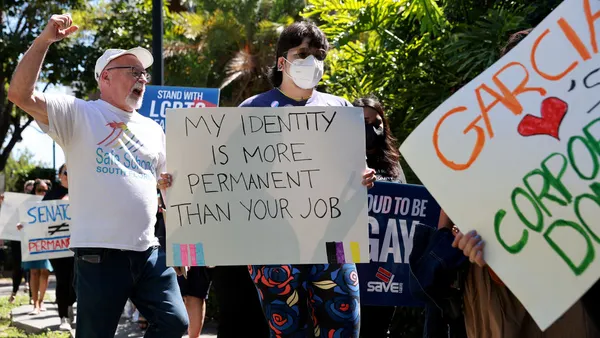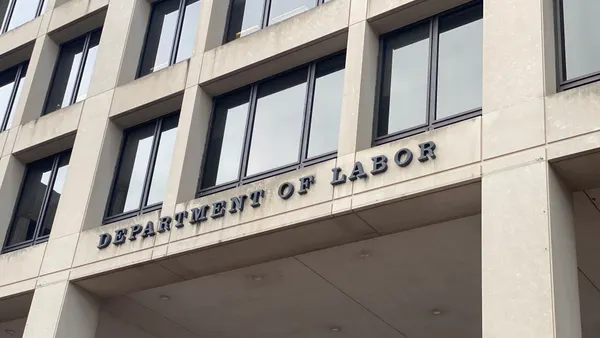In the chess game of public-sector DEI, President Joe Biden has made a play for checkmate. On Feb. 22, the president issued an executive order calling for each government agency to create equity teams. The order also established a diversity, equity and inclusion steering committee to hold these teams accountable.
Biden’s move comes on the heels of Texas Gov. Greg Abbott calling to cut certain diverse hiring initiatives, implying that DEI-minded objectives may be illegal.
Notably, the order defines “equity” as “the consistent and systematic treatment of all individuals in a fair, just, and impartial manner,” particularly those who have often “been denied such treatment.” The document names “Black, Latino, Indigenous and Native American, Asian American, Native Hawaiian, and Pacific Islander persons and other persons of color,” religious minorities, women and girls, people in the LGBTQ community, people with disabilities, people who live in rural areas as well as U.S. territories, and “persons otherwise adversely affected by persistent poverty or inequality.”
For HR professionals, it’s worth noting that the Departments of Labor, Health and Human Services and Education, among others, will be setting up equity teams over the next month; the executive order mandates that named government agencies ensure that they have an equity team coordinating initiatives “within 30 days of the date of this order.” Along with setting the national DEI agenda, this legislation could reasonably affect compliance, workplace health mandates and the talent comprising the future of work. The “senior designee” heading each equity team is required to report to agency leadership and the DEI steering committee, while also coordinating L&D and funding for equity training and career development.
Through his chief of staff, Gardner Pate, Abbott denounced DEI initiatives in the public sector in a Feb. 4 memo. Noting that “as Texans,” the Abbott administration celebrates the diversity of its state, Pate said “the innocuous-sounding notion of diversity, equity and inclusion has been manipulated to push policies that expressly favor some demographic groups to the detriment of others.” Some DEI initiatives decrease diversity in the workplace and “proactively” encourage discrimination, he continued.
“Illegally adding DEI requirements as a screening tool in hiring practices or using DEI as a condition of employment leads to the exclusion and alienation of individuals from the workplace,” he wrote. “Rebranding this employment discrimination as ‘DEI’ does not make the practice any less illegal. Further, when a state agency spends taxpayer dollars to fund offices, departments, or employee positions dedicated to promoting forbidden DEI initiatives, such actions are also inconsistent with the law.”
Throughout 2022, anti-DEI legislation has created a tense environment in which practitioners are attempting to do inclusion and belonging work. Florida Gov. Ron DeSantis signed the “Stop WOKE Act” into law last April, enacting a schoolwide and businesswide ban on critical race theory. This includes teachings that members of one identity group are morally superior; inherently racist, sexist or oppressive; or either privileged or oppressed due to their identity, according to a flyer the DeSantis administration released. “No one should be instructed to feel as if they are not equal or shamed because of their race,” DeSantis said in an announcement of the legislation.
Recently, a labor expert acknowledged the role that anti-DEI legislation plays in reports that employer prioritization of DEI is on the decline. The export told HR Dive that the inclusion and belonging piece may simply be seeing a rebrand as “employee experience.”
Looking ahead, government agency leads are to submit an equity action plan by September 2023 and every year thereafter, concurrent with their annual pitches to the Office of Management and Budget.














